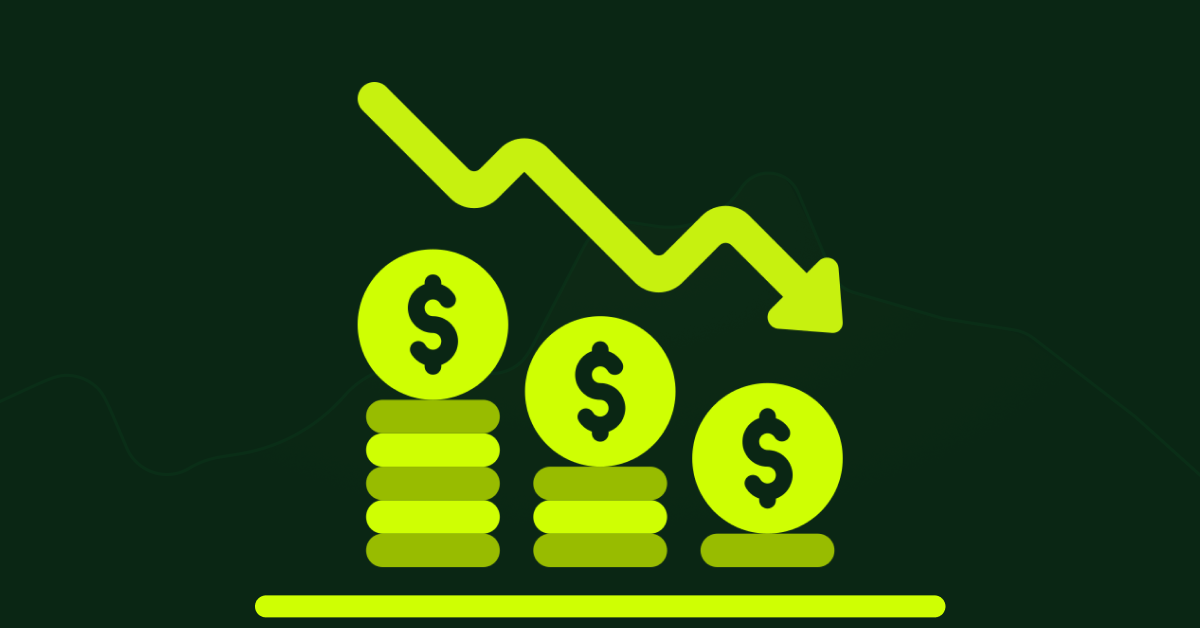What To Do When the Stock Market Crashes
When the stock market plunges, it can feel like the ground is disappearing beneath your feet.

What To Do When the Stock Market Crashes? It’s the worst nightmare of every investor. Your portfolio is bleeding. You’re losing your hard-earned money. Fear grips you. You want to get out. You want to save whatever is left.
The biggest question — Is the stock market crashing? Is this the end of a bull run? Or, is it just a market correction?
I started investing in stocks in 2003. Since then, I’ve been through three market crashes. My investment portfolio was down by 83% in 2008. It was a big lesson for me. I made mistakes, and I learned from them. I want to share what I learned during the stock market crashes.
When the stock market is going down, there are two types of investors. The first type is called panic sellers. These are the investors who panic and sell their stocks at a loss. They think that they’ll save whatever they can before the stock goes to zero. The second type is called smart investors. These investors are not afraid of the stock market crashes. They believe in their investing strategy. They hold on to their investments or buy more at lower prices.
There are always warning signs before a stock market crash. In this post, I’ll share the 10 most common reasons for a stock market crash. I’ll also share how you can protect your investment portfolio and reduce your losses when the stock market crashes.
1. Don’t Panic
The most important thing to do when the stock market crashes is to not panic. If you’re investing for retirement, you’re investing for the long term, and short-term market volatility is a normal part of the process. In fact, it’s not a question of if the stock market will crash, but when.
If you’re a newer investor who’s never experienced a stock market crash before, just know that it’s a normal part of the investing process. In fact, it’s the price we pay for the stock market’s superior long-term returns. The key is to stay calm and not make any rash decisions.
2. Don’t Change Your Long-Term Investment Strategy
When the stock market crashes, it can be tempting to change your investment strategy. However, it’s important to keep in mind that investing is a long-term game. Over time, the stock market has generally gone up, even with the occasional crash.
If you change your investment strategy every time the stock market crashes, you’re likely to miss out on the gains you could have made if you had just stayed the course.
Instead, it’s a good idea to review your investment strategy. If you’re investing for the long term, you should be focused on building a diversified portfolio of stocks and bonds that matches your risk tolerance and investment goals.
3. Focus on the Big Picture
When stock prices are falling fast, it's important to take a step back and look at the big picture. A stock market crash can be a great time to remind yourself why you're investing in the first place.
The stock market has historically been the best creator of wealth over the long run. The S&P 500 has averaged a 10% annual total return over the past 100 years, and that's after taking into account the many stock market crashes and corrections that have occurred.
In fact, the stock market has endured many more severe downturns than the ones that have been discussed in this article. For example, the S&P 500 lost 34% of its value in 1987 and lost 38% of its value in 2008. And these are just a few examples.
The point is that the stock market has always recovered from its downturns and has always gone on to reach new highs. While it's impossible to predict when the stock market will bottom out and start to recover, history has shown that it will happen eventually.
4. Take Stock of Your Investments
The stock market is a good place to make money, but it’s not the only place. And, it’s not the best place to invest all your money.
The stock market is best utilized as a long-term investment. If you are investing for a goal that’s more than 10 years away, then the stock market is likely a good place for your money.
But, if you are investing for a goal that’s less than 10 years away, then you should consider other investment options. If you are investing for a goal that’s less than 10 years away, and the stock market crashes, then you may need to take a step back and reevaluate your investment strategy.
The first thing to do is to look at your asset allocation. How much of your money is invested in stocks? How much is invested in bonds? How much is invested in cash? If you are investing for a goal that’s less than 10 years away, then you should have a more conservative asset allocation. This means that you should have less of your money in stocks and more of your money in bonds and cash.
If you have too much of your money in stocks, then you may want to consider selling some of your stock investments and buying bonds or cash.
5. Have Some Cash on Hand
It's always a good idea to have some cash in your investment portfolio, but especially when the stock market is at risk of a downturn.
Having some cash in your investment account gives you the flexibility to buy stocks at a discount when the market falls. Plus, it can help you avoid having to sell stocks at a loss if you need to raise money in a pinch.
6. Be Smart About Selling Stock
If you have to sell investments to raise cash, it makes sense to sell your best-performing stocks first. If you have a stock that has doubled in value, for example, and another that has lost 30% of its value, it makes sense to sell the stock that has doubled in value.
Why? Because the stock that has lost 30% of its value may be due for a rebound and could potentially save you money in taxes if you sell it at a gain in the future. On the other hand, the stock that has doubled has a higher likelihood of falling in value and erasing some or all of your gains.
7. Don’t Try to Time the Market
This is the most important piece of advice I can give you. Nobody can predict the stock market, and that includes the world’s most successful hedge fund managers.
Instead of trying to figure out when the market will hit bottom, the best thing you can do is to make sure that you are comfortable with your investment strategy and that it is designed to help you reach your long-term goals.
If you are, then you shouldn’t need to know when the market will bottom. If you aren’t, then you should be making some changes to your strategy, not your market-timing skills.
8. Remember the Benefits of a Stock Market Crash
It may sound strange, but stock market crashes are a normal part of the investment cycle. In fact, the stock market has crashed many times over the years and has always recovered.
While it’s not a good thing when stock prices fall, there are some potential benefits. For example, a stock market crash can be a great time to buy high-quality stocks at a discount. It can also help to weed out some of the overvalued companies in the market.
Finally, a stock market crash can be a good reality check for investors. It reminds us that stocks can be risky and that it’s important to be prepared for market downturns.
Conclusion
The stock market is inherently volatile, and as an investor, it's important to be prepared for the ups and downs. By knowing what to do when the stock market crashes, you can avoid making rash decisions and putting your portfolio at risk.
